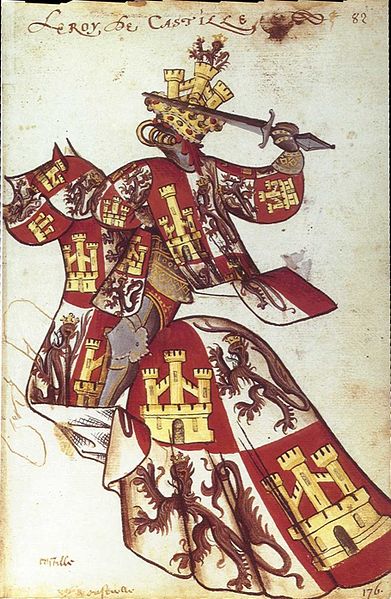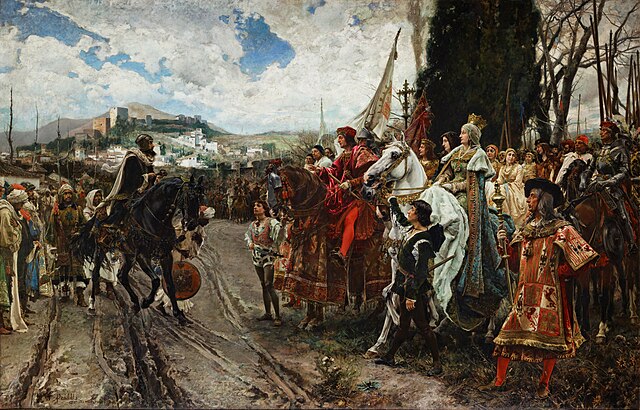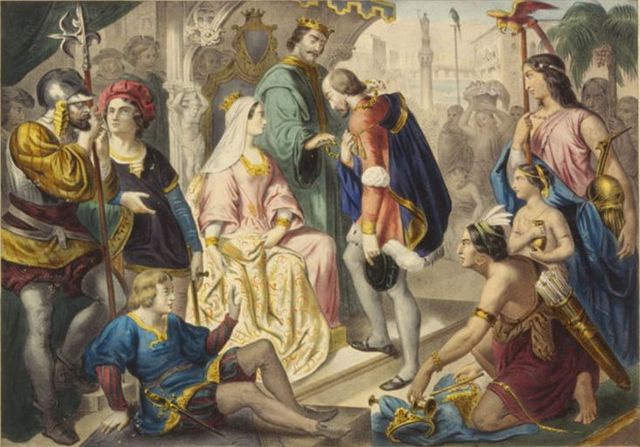Fuero, Fur, Foro or Foru is a Spanish legal term and concept. The word comes from Latin forum, an open space used as a market, tribunal and meeting place. The same Latin root is the origin of the French terms for and foire, and the Portuguese terms foro and foral; all of these words have related, but somewhat different meanings.
Ferdinand the Catholic confirming the fueros of Biscay at Guernica in 1476
King James I of Aragon receives from Vidal de Canyelles, Bishop of Huesca, the first compilation of the Furs d'Aragó (the "Fueros of Aragon"), 1247
Compilation of the Fueros and Acts of Aragon (1592)
Spanish satiric depiction against the fueros embodied in the Tree of Gernika
The Crown of Castile was a medieval polity in the Iberian Peninsula that formed in 1230 as a result of the third and definitive union of the crowns and, some decades later, the parliaments of the kingdoms of Castile and León upon the accession of the then Castilian king, Ferdinand III, to the vacant Leonese throne. It continued to exist as a separate entity after the personal union in 1469 of the crowns of Castile and Aragon with the marriage of the Catholic Monarchs up to the promulgation of the Nueva Planta decrees by Philip V in 1715.
Equestrian heraldic of King John II of Castile in the Equestrian armorial of the Golden Fleece 1433–1435. Collection Bibliothèque de l'Arsenal.
The Surrender of Granada (Francisco Padilla, oil on canvas, 1882)
Columbus and the Catholic Monarchs (The return of Columbus)
"The Comuneros Padilla, Bravo and Maldonado in the Patíbulo", by Antonio Gisbert, 1860.








